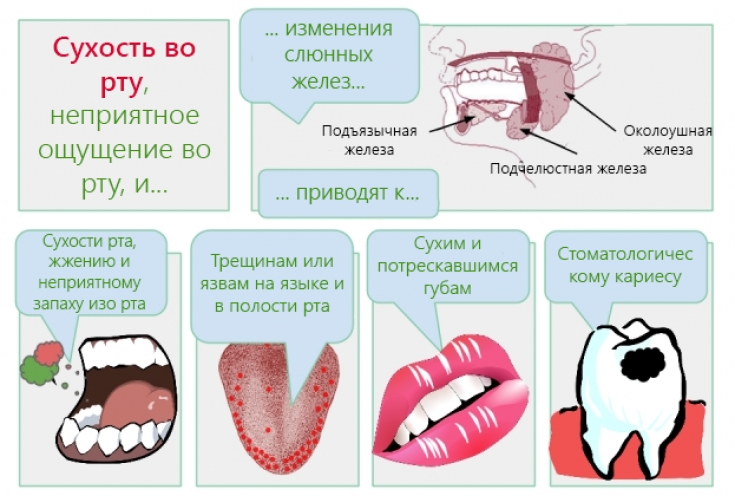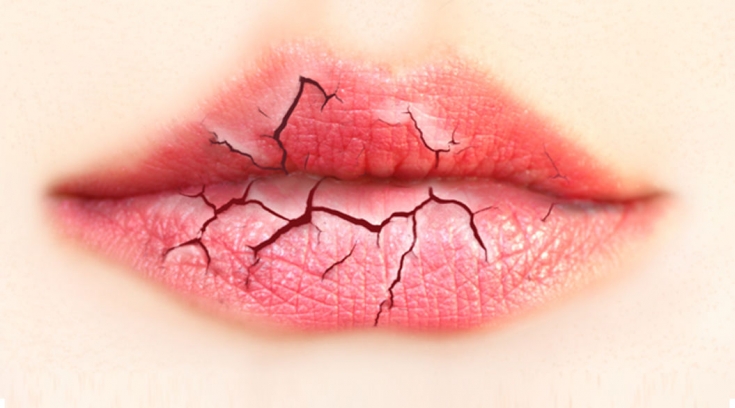Dry mouth, also known as xerostomia – a fairly common complaint among patients who seek help from dentists and general practitioners. At first glance, it may seem that dry mouth is a completely harmless phenomenon.
In fact, xerostomia can significantly impair the patient's quality of life and also be a symptom of other serious pathological conditions.
In this article on estet-portal.com, we will look at the most common causes of dry mouth, as well as modern diagnostic approaches and methods for eliminating xerostomia.
Possible Causes of Dry Mouth: From Medications to Diabetes
Xerostomia can be a symptom of many pathological conditions that the doctor needs to be aware of. Among them, the most frequent ones should be highlighted:
1. Taking medications (especially polypharmacy). Drugs that reduce saliva secretion include: diuretics, anticancer and psychopharmacological drugs, cough medicines, and some analgesic, antipyretic and antirheumatic drugs.
2. Rheumatic diseases, in particular Sjögren's syndrome;
3. Hormonal changes, such as menopause;
4. Anorexia, starvation;
5. Type I diabetes mellitus.
Xerostomia can occur while taking diuretics, analgesics, cough medicines, and also be a manifestation of menopausal syndrome and diabetes.
The doctor should take a careful history of the patient's life and also ask some leading questions to find out the possible cause of the dry mouth.
Follow us on Telegram
Xerostomia may be accompanied by a metallic taste and an unpleasant odor
A patient who complains of a feeling of dryness of the mucous membranes in the mouth often has other accompanying symptoms.
These include:
1. Mucosal lesions: presence of ulcers or candidiasis;
2. Bad breath;
3. Burning sensation language;
4. The presence of unusual taste sensations (for example, a metallic taste in the mouth);
5. Difficulties in using removable dentures;
6. Difficulty speaking, eating and swallowing;
When examining a patient with dry mouth, it is important to ask them the following questions:
1. Do you find it difficult to swallow dry food (biscuits, bread) without drinking fluids?
2. Do you have to wake up at night feeling dry mouth?
3. Has your tooth sensitivity changed?
In a patient who complains of dry mouth, it is important to measure the amount of saliva being discharged. The most common and simple – measurement of salivation within 5 minutes of chewing paraffin. Normally, it exceeds 5 ml. Xerostomia – subjective feeling of dry mouth, in most cases occurs when the amount of saliva is less than 2.5 ml in 5 minutes.
You may be interested in: Acute Toothache: Fast Professional Patient Care

Meticulous daily hygiene is important for a patient with xerostomia
For a patient with xerostomia, careful daily oral hygiene is very important.
Toothpastes and mouthwashes containing fluoride are recommended.
If a patient uses dentures, care must be taken to clean and store them very responsibly. Never sleep with dentures on. Patients with dry mouth should visit the dentist every 3-6 months.
Read also: Bad breath: causes and remedies
Fixing Xerostomia: Dietary Advice and Medications
The patient should be advised to eat 5-6 times a day with meals that require careful chewing. At the same time, the meal should end with the consumption of vegetables, nuts or cheese, which neutralize bacterial acids.
Sugary snacks, sour fruits, and drinks between meals should be limited. Plain and mineral water are safe for teeth. It is very important that the patient drinks a sufficient amount of plain water per day, and also regularly irrigates the oral cavity.

Xylitol gums are also recommended.
At night, it is advisable to use artificial saliva substitutes. Dry mucous membranes of the mouth can be moistened with vegetable or olive oil.
In cases of severe dry mouth, when the use of the above remedies is ineffective, it is necessary to prescribe a drug treatment to the patient: pilocarpine 5 mg 3-4 times a day.
Pilocarpine may be used to treat xerostomia, but the patient should be warned about possible side effects.
This material is based on international recommendations that meet the postulates of evidence-based medicine: EBM Guidelines "Dryness of the mouth".
Thank you for staying with estet-portal.com. Read other interesting articles in the "Dentistry" section, you may also be interested in: Is it necessary to put a crown on a tooth: indications and alternatives.









Add a comment